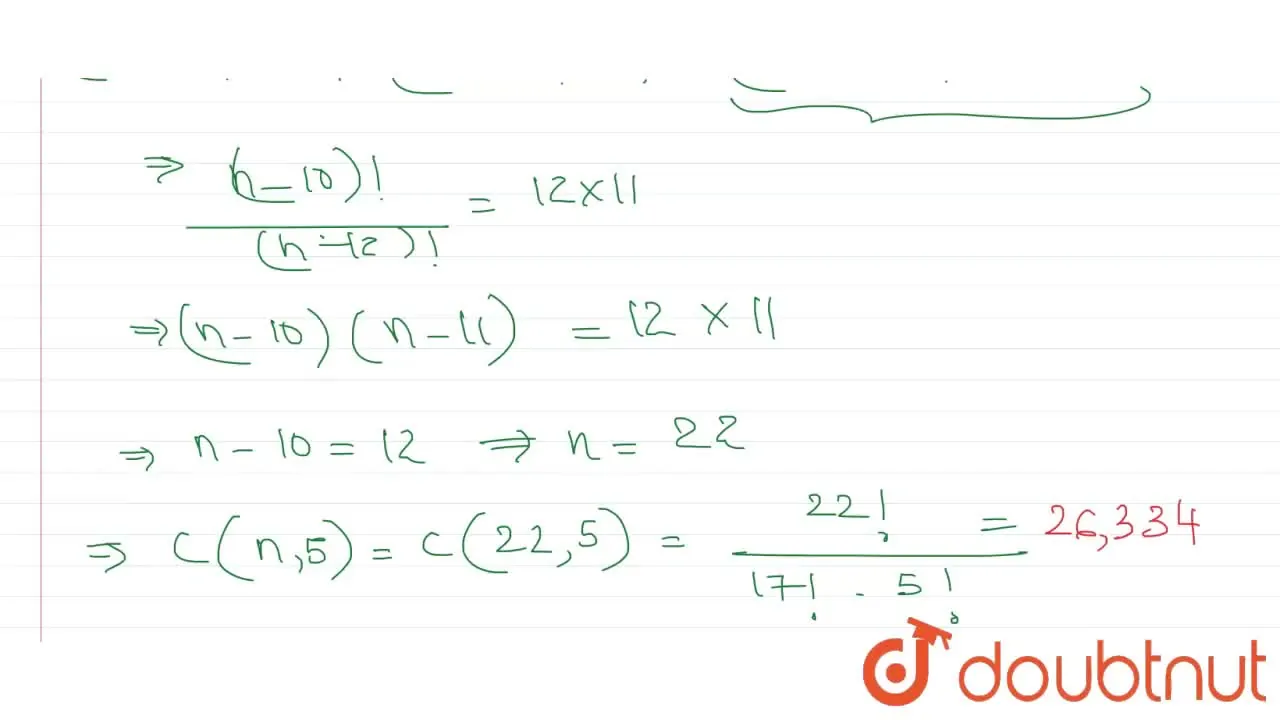If C(n,10)=C(n,12), dertermine C(n,5)
Video Solution
Text Solution
The correct Answer is:26334
|
Answer
Step by step video, text & image solution for If C (n,10) =C(n,12) , dertermine C(n,5) by Maths experts to help you in doubts & scoring excellent marks in Class 11 exams.
Updated on:21/07/2023
Similar Questions
If C(n,12)=C(n,16), then C(30,n)=?
View SolutionC(10,2) = C(n,2).Find n.
View SolutionIf C(n,12)=C(n,8), then C(22,n) is equal to a. 132 b. 210 c. 252 d. 303
View SolutionIf C(2n,3):C(n,2)=12:1 find n,
View SolutionIf C(n,4) = C(n,6). Find C(12,n)
View SolutionIf nC10= nC12find23Cn
View SolutionIf .nC10=.nC15, then evaluate .27Cn.
View SolutionIf .nC5=.nC7, then find .nP3
View SolutionIf .20Cn+1=nC16, then the value of n is a.7 b. 10 c. 13 d. None of these
View SolutionIf nC10=nC13 , then find the value of nC2
View Solution


